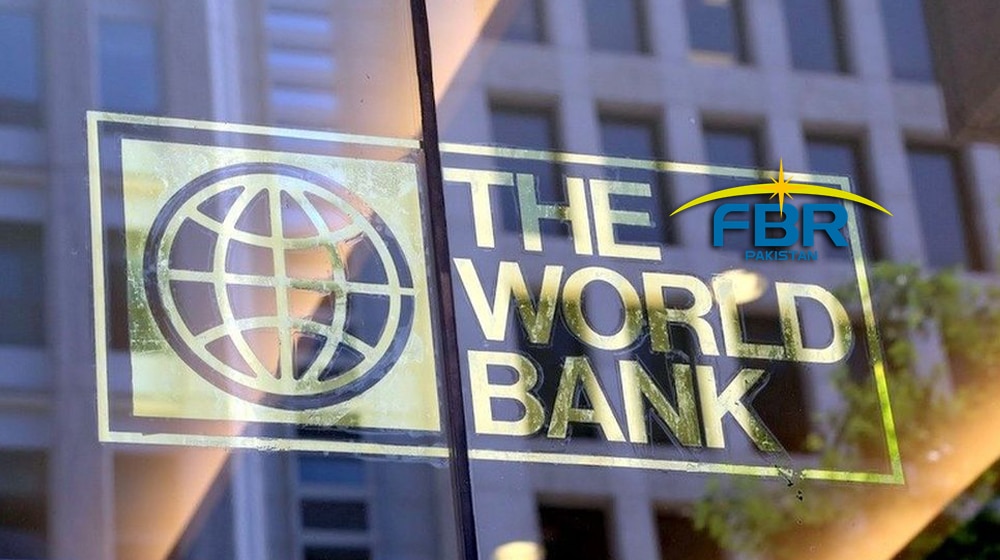Pakistan’s tax system needs a well-structured overhaul that simplifies its provisions, closes loopholes, and ensures an equitable distribution of the tax burden.
The World Bank (WB) in its report ‘Enabling a Modern and Efficient Tax System’ said Pakistan needs to unify its tax system to increase its revenue potential. It also set out some immediate and long-term recommendations to improve its tax base, with special emphasis on the tobacco sector and the country’s powerful elite.
Despite the development of strategies and proclaimed intentions over the last two decades, successful outcomes remain to be attained, says the Bank.
Instead of a complete system overhaul, which may be infeasible from a political economy perspective, a carefully prioritized approach that bundles reforms with compensation mechanisms, stakeholder consultations, and continued investments in taxpayer services may be more promising. In the long run, reforms should aim to create (i) a simple CIT regime with a single, simplified provision for smaller companies, (ii) a personal income tax system focused on taxing income only at the source, and (iii) a non-distortionary comprehensive sales tax system.
The report notes that Pakistan’s current tax system provides preferential treatment to a range of economic and political interest groups through concessions, exemptions, and other policy measures.
It says meaningful reform, and therefore growth, is contingent on a country’s elites’ acceptance that growth is in their self-interest. For Pakistan, this requires highlighting to the elites that currently oppose tax reform that their personal costs associated with Pakistan’s boom-bust growth cycle outweigh their benefits from narrow preferential tax treatment, and that they (and their businesses) are set to gain more from a stable and fast-growing Pakistan with an equitable and efficient tax system than under the status quo.
Public pressure on elites through transparency can also help, for instance through the publication of detailed beneficiary reports that highlight which firms and beneficiary owners take advantage of certain tax incentives.
Sales Tax
The bank urges for unifying the rate structure and eliminating zero ratings on domestically sold products as soon as possible. As a medium-term priority, the report suggests the reduction of sales tax exemptions while concurrently lowering the overall rate.
In the long term, WB recommends unifying and aligning the sales tax registration threshold with the CIT threshold and harmonizing the provincial and federal sales tax systems.
Personal Income Tax
As an immediate priority, the report urges unifying and simplifying the personal income tax schedule for salaried and non-salaried taxpayers. Second, the bank suggests reducing the time dependence on capital gain tax liability.
In the long term, WB recommends calibrating the taxation of capital and labor income. Pakistan could consider establishing a dual-income tax regime that only differentiates income by two sources: labor and capital. A distinction between these two sources adequately considers that capital should be taxed for redistributive purposes, but that lower taxation than for labor income can encourage savings and investments.
Corporate Income Tax
The bank urges:
- Creating a unified and simplified concessional tax regime for small companies (immediate priority)
- Unifying the standard rate regime, expanding thin-cap provisions, and rationalizing tax incentives (medium-term priority)
- Resolving inconsistencies between the turnover and alternative tax regimes (long-term priority)
FED on Cigarettes
The bank suggests creating an automated mechanism to adjust excise rates for inflation. Pakistan taxes cigarettes through nominal specific rates, but inflation risks eroding the tax base over time when nominal taxes are not adjusted upwards. To safeguard against inflation-induced tax base erosion, Pakistan could consider introducing an annual automatic adjustment mechanism that updates cigarette tax rates in line with inflation.
In the medium term, Pakistan should roll out an effective digitized stamp system to allow for uniform enforcement of excise duty. WB said Pakistan could consider adopting QR codes that link directly to a verifiable database within the Federal Board of Revenue.
Finally, in the long term, the report recommends unifying the tax system to increase its revenue potential. Pakistan’s system of dual taxation for cigarettes based on their final retail price opens evasion opportunities and differs from international practice. Pakistan could consider applying a single rate to all cigarettes independent of their price. This would not only raise revenue but would also align the taxation of cigarettes with the WHO’s recommended practice.






















